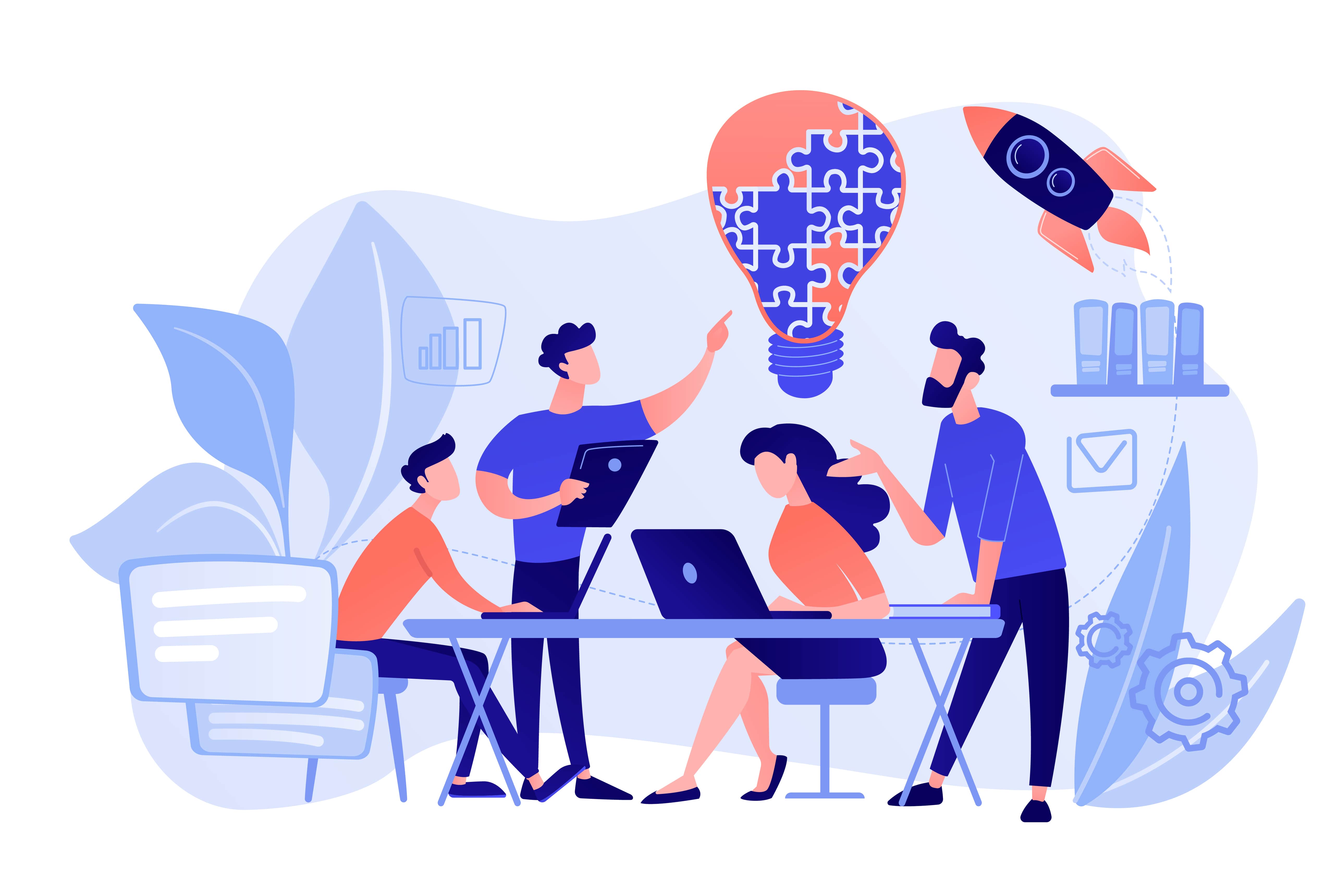When a critical job in your business becomes available, you want to evaluate interviewees and fill it as soon as possible with the best candidate you can find. So you create a comprehensive job description, look for the best resumes, review LinkedIn profiles, and limit your selection down to the top prospects.
However, when you prepare to interview these potential workers, it is critical to go beyond each candidate’s technical talents. Those so-called “hard talents” are only half of the story when selecting the perfect individual for the position.
The phrase “soft talents” refers to a collection of more difficult to quantify personal traits and social attributes contributing to a good employee. Many individuals have the appropriate degrees, abilities, and expertise to accomplish a job. Still, once employed, they may be completely unsuitable for the roles hired them. Some of these recruits who appear so promising on paper may be uninspired, dishonest, or simply difficult to get along with them.
While may teach hard skills to an employee, soft skills are more of an inherent aspect of a person’s character and are harder to learn on the job. If you’re seeking to hire a new employee, there are a few essential characteristics to look for while interviewing prospects.
You can find out who will match the role and your company culture on all levels by carefully framing your questions and listening for specific sorts of attitudes and replies.
Here are the 10 Ways How HR Evaluates An Interviewee.
1. Evaluate Interviewees by Testing their Communication Skills.
The streak of HR interview questions never ends without a few questions related to communication skill evaluation.
As per a study conducted by the research and consultancy firm Millennial Branding, 98 percent of employers believe that good communication skills are crucial for job prospects. So by the time you get for the interview, you will have a good idea of some of the candidate’s communication abilities.
For example, you’ve most likely corresponded via email, visited the candidate’s social media profiles, and maybe spoken on the phone or via Skype. Take note of the candidate’s attention to detail in these many modes of communication.

Now that you’ll be meeting in person, it’s time to ask some open-ended questions. It will bring you a good sense of how all these individuals will connect with others on the job.
Open-ended questions are an excellent approach to assessing communication abilities. For example, you might start with a wide ice-breaker question like, “Tell me about yourself” or “Tell me why you think you’re a good fit for this position.”
When your applicant answers, look for essential communication traits such as eye contact, an open body posture with extended arms and legs, and a forward-leaning stance. Next, you may examine the candidate’s communication abilities further by asking the following questions: Describe an instance when you had a disagreement with a boss and what you did to settle it.
2. Evaluating Teamwork & Cooperation Capabilities
When making a recruiting choice, evaluate interviewees concerning how they will fit in with the rest of your team. Of course, the applicant will work independently at times, but you will also want to ensure that she can collaborate well with your team on projects when appropriate.

One method for determining this competence is to ask, “Tell me about when you finished a collaborative assignment at your prior job.” Then, if required, ask follow-up questions regarding the size of the group, your candidate’s duties, and the scope of the project. Also, inquire whether or not the project was a success and why or why not.
Another approach to assessing a candidate’s collaboration ability is to question, “When do you like to work in a group environment, and when do you prefer to manage a project independently?”
3. Positive Attitude
If you’ve got sharp interview techniques, you might know the importance of evaluating the positive attitude of the interviewee.
A good attitude is directly related to business professionals. Whether you are hiring for an entry-level role or a volunteer position, you want someone enthusiastic about working for your company. When a candidate is excited about a job, it shows in the workplace and on the job.

HR interview questions: How does this role fit with your long-term professional goals? While you evaluate interviewees, the candidate’s reaction will show how much he understands the firm and its culture and whether he sees a position with your organization as a stepping stone or a significant career.
4. Evaluate Interviewees on the Grounds of Flexibility
Flexibility is vital for adjusting to diverse situations and people and managing unexpected occurrences with calm and grace.
Companies that could survive and even prosper during the last economic slump did so because they were adaptable. For example, they may have reduced one part of their business while increasing another.

Customers can abandon you for your competitor’s goods or services with the click of a mouse in today’s global market. As a result, adaptability is more important than ever.
Ask your applicant to explain a circumstance where he had to adjust to developments he had no control over.
5. Goal-Oriented
A strong employee views this new role as a challenge. As a result, you will receive the best work performance, which sees the new job means to an end rather than a means to a salary or another item on a résumé.

When you evaluate interviewees, ask your prospects a few easy questions to determine their goal-oriented, such as:
- Describe your short-term and long-term professional objectives.
- How do you evaluate your accomplishments?
- Tell me about your previous work and how it fit or did not fit into this strategy.
- How would this position help you advance your career?
Another approach to learning about a candidate’s professional objectives is to ask, “Where do you see yourself in five years?” The answer question will indicate if the candidate plans to continue with your business and how much they already know about it.
6. Dependability
Every interviewer’s objective is to hire a dependable employee. You want a candidate that will come up on time and give their best to every project. In addition, you’re looking for someone who follows your organization’s policies and processes and is trustworthy with corporate resources.

Trustworthiness is a crucial soft talent, but it is tough to assess in an interview. What you’re searching for in a candidate is evidence of reliability in a previous performance. An inquiry about reliability might begin with: How would you define your work ethic?
After that, ask the applicant to describe a circumstance where she had to go call of duty to complete a task. If required, get clarity on the candidate’s work duties when this occurrence happens.
7. Creativity
Creativity is the ultra-crucial quality to check when you evaluate interviewees, and it depends upon your interview techniques and how you figure out the creativity level of the interviewee.
“thinking outside the box” and “drawing outside the lines” have become meaningless cliches. Still, the ability to think creatively is a highly desired soft talent in today’s employment market.

Managers need adaptable team members who can use their talents in various circumstances and solve unforeseen challenges with ease and confidence. Here’s an example of a question to assess your candidate’s creativity:
Begin by mentioning how your business constantly strives to accomplish more – sometimes with less. Then, ask the applicant to tell you about a moment when they assisted a recent project or helped it become quicker, wiser, more efficient, or less expensive.
This question will pique the interest of strong job prospects, who will be ready to offer their innovative ideas. Another approach is to ask applicants to describe a moment when they had to tackle a difficult challenge at work. Request as much information as possible, including project timelines and budget.
8. Organization
A good job applicant has great organizational abilities and is exceptional at time management, regardless of your business’s service or product. They will express the same in a job interview.
Although our society has long admired the notion of multitasking, a new study shows that completing many activities at once does not imply doing them successfully.
For example, a 2005 study done by the Institute of Psychiatry at the University of London discovered that workers who are distracted by emails and phone calls had an IQ drop that is more than double that of marijuana smokers. When you attempt to complete two different activities, such as sending an email and listening to a presentation, your brain cannot comprehend both and properly encode them into your short-term memory.
When information is not stored in short-term memory, it cannot transfer to long-term memory for subsequent recollection.
Another study was conducted by researchers at the University of California, Irvine. They discovered that office workers needed 25 minutes to recover from interruptions such as receiving phone calls or responding to emails before returning to their original activity. According to a 2007 New York Times story, excessive multitasking costs the American economy $650 billion in lost time and production.
Here are some HR interview questions to assess a job candidate’s organizing abilities when you evaluate the interviewee:
- On a typical weekday, how do you prioritize your tasks?
- What measures do you take to get organized before starting a new project?
- What actions have you taken (or would you take) when it looks that a project will not meet its deadline?
9. Integrity
Integrity goes hand in hand with reliability, and that’s worth keeping in mind while you evaluate the interviewee. Contrary to popular belief, companies seek to recruit people who do business ethically.

Employees that are honest and transparent in all facets of their job are the best. Aside from thoroughly examining the candidate’s references, how can you determine the applicant’s integrity? Here are some HR interview questions to consider:
- What would you do if your boss or a coworker asked you to do something unethical?
- Tell us about a time at work when you questioned your integrity
- How did you deal with it?
- Is there ever a time when being honest at work is inappropriate?
- Have you ever had a career setback or loss due to doing what you thought was right?
10. Intelligence
What comes inside your mind whenever you think about intelligence? Do you have a high SAT or IQ? Someone who reads a lot? Is someone fluent in multiple languages? Intelligence needs to be evaluated in a job interview.
Suppose you’re presented with a stack of resumes from numerous eligible candidates for your position. How do you decide who has the intellect for the job? That intelligence – that indefinable capacity to make sense of a difficult job, figure out the next step after a project has gone away, or soothe an upset customer – is priceless.

A clever employee can think on their feet and never get bored since she constantly comes up with new ideas. They are capable of handling difficult circumstances when necessary. A clever employee is creative and adaptive to changing environments.
Here are some questions to ask when you evaluate an interviewee to see whether a job prospect has the degree of thinking required by your firm and is not simply adept in a certain job skill.
- What drives you to do your best at work?
- Share how you will be able to contribute based on all you know about this firm.
- In your role, how will you continue to grow and learn?
- What irritates you at work?
Make time at the end of your interview to ask the job prospect if they have any questions.
A Few Final Thoughts:
You can’t evaluate interviewees perfectly without writing notes for your understanding and memory. To begin with, especially if you are interviewing a large number of prospects, your memory might fail you, and taking notes will help you keep your thoughts straight. Taking notes during an interview communicates a sense of professionalism and thoroughness regarding the entire process.
Furthermore, adaptability is important not just for the candidate but also for the interviewer. If a candidate provides you with any confusing or partial replies – or just plain fascinating ones – ask pertinent follow-up questions to explain everything you don’t understand.
While it is beneficial to have your questions prepared ahead of time, it may be necessary to depart from the script if you believe it would assist you in learning more about a possible employee.
Are you still not close to your decision? Conduct a second interview. You may invite additional members of your team to this meeting. Include important persons who will affect the hiring choice. Provide them with enough information to understand their position in the interview if there’s an upcoming one.
End the interview, whether the first or second encounter, by informing the applicant of the following steps. First, please give them a time frame for your choice, and stick to it.

Leave a Reply